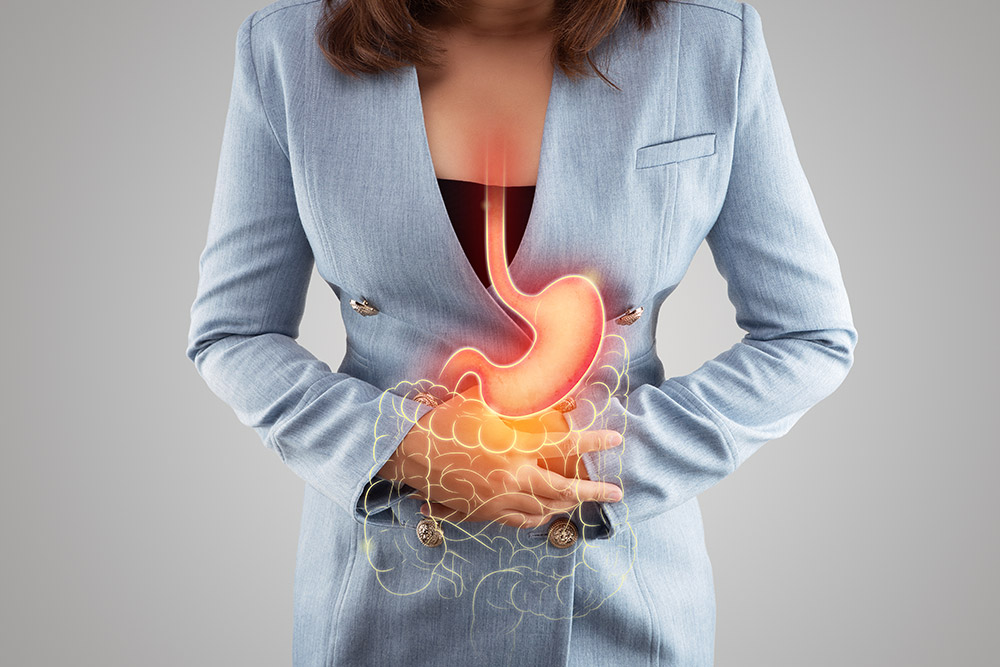
Having digestive problems is daunting. The question that many individuals in Houston and elsewhere would want to know is: what is the difference between Crohn and ulcerative colitis? At Gastrodoxs we deconstruct the distinction between IBD conditions described in such a way that you feel in charge.
The term Inflammatory bowel disease (IBD) refers to the persistent inflammation of the gut. Two major forms exist:
These two conditions are both brought about by an excessive reaction of your immune system towards normal intestinal bacteria. This causes inflammation, ulcers and other intestinal problems.
Being a gastroenterologist who has served Houston more than 10 years, Dr. Bharat Pothuri can understand the confusion IBD may create. The knowledge of the differences is useful in assisting the patient to receive timely treatment and improved outcomes.
Being aware of the distinction between Crohn and ulcerative colitis can make you:
A close side-by-side view of the differentiators between Crohn and UC is seen below.
| Characteristic | Crohn's Disease | Ulcerative Colitis |
| Affected area | Any part: mouth - anus | Colon and rectum only |
| Extent of inflammation | Full-thickness (all layers of gut wall) | Mucosal layer (inner lining) |
| Lesion pattern | Skip lesions, patchy, separated by normal tissue | Continuous inflammation extending downwards of rectum |
| Symptoms typical | Abdomen, weight loss, fatigue | Repeated bloody diarrhea, cramps |
| Fistula/stricture risk | High | Rare |
| Colon cancer risk | Moderate shittering increase | Greater with disease > 10 years |
| Smoking effect | Affects worsening symptoms negatively | Affects improves symptoms |
But there are indications, pointing more in one direction than in another:
Dr. Bharat Pothuri says that when patients inquire me on how they can distinguish between the Crohn and ulcerative colitis, I would examine their symptom patterns. UC is frequently indicated by bloody diarrhea and steady involvement of the colon whereas Crohn is indicated by skip lesions and inflammation of the deeper gut wall.
It is important to get the correct tests. Here's a quick guide:
Dr. Pothuri then adds, Initiating the use of biologics early in the development of severe IBD is able to alter the course of the disease. Our IBD centers in Houston adhere to international standards and provide care to patients in a personalized manner.
Local tip: You may also attend the Houston IBD Symposium every year to listen to the experts such as Dr. Bharat Pothuri discuss the latest findings.
With these in mind, you will be able to distinguish between Crohn's disease and ulcerative colitis, and when you need care within the best centers in Houston.
We want to wish you good luck in this guide and feel knowledgeable and empowered. To get more resources of IBD, follow Gastrodoxs.com. And keep in mind, early diagnosis and proper treatment here in Houston is all.
The Gastrodoxs Team
Crohn disease may involve any section of the digestive tract and all the layers of bowel wall whereas ulcerative colitis is confined to the inner lining of the colon and the rectum.
A combination of the medical history, physical examination, blood tests (to identify inflammation and anemia), stool studies (to exclude infection), endoscopy/colonoscopy with biopsies, imaging (MRI, CT scan or ultrasound) is mostly used in diagnosing small-bowel Crohn.
No. Although nutrition therapy and special diets can control the symptoms and avert malnutrition, most patients need medications or surgery to control inflammation and remission.
Ulcerative colitis is treated with removal of the whole colon (colectomy) and patients are required to use a pouch or stoma. Crohn disease is an incurable condition that is effectively treated with medication, nutritional therapy and in a few cases surgery.
Biologics neutralize particular elements of the immune reaction (e.g. TNF or integrins) to decrease the inflammatory state, stimulate recovery of the gut lining, and in many cases, lead to long-term remission in moderate to severe cases.
Surveillance colonoscopies are suggested to patients with long-standing IBD (particularly ulcerative colitis) every 1-3 years to detect colorectal cancer, depending on disease duration, extent and other risk factors.
The family history is a risk factor of developing IBD, but not the only one of genetics. Immune system factors and environmental triggers also have important roles in the development of disease.
Yes. Pediatric IBD is also a known disease that usually demands early detection and treatment in special facilities to aid in growth, nutrition, and general development.
The important resources in the area are the Houston Methodist IBD Center, UTHealth GI Clinic, and Houston support groups of Crohn and Colitis Foundation (Texas Chapter). Guidance and community is also provided through dietitians and the annual Houston IBD Symposium.
In Crohn, surgery is thought of in complications, like strictures or fistulas, or when ulcerative colitis is severe and not responding to medical treatment. UC can be cured using colectomy and Crohn surgeries are aimed at removing disease and dealing with complications.